What you need to know about your horse...!
Wound care and first aid for your horse for every horse owner it is wise to have a first aid package, you need good stables to be prepared for accidents with your horse.
An accident is in fact a small corner and happens at the most unexpected moments.
It is very important for your horse that you can quickly act in the acute stage, which prevents worse and helps in faster recovery from a wound or other injury to your horse.
You have, of course, not always a veterinarian on theft and most accidents also ask for adequate treatment until your veterinarian arrived.
It is important that you learn to recognize when your horse is not behaving normally.
That means you must observe the normal behavior of your horse.
Behavior beforehand and during eating, speed of eating, stable behaviour, urinating, stools and everything still stands out in the daily care of your horse.
If you know the normal behavior of your horse, you will recognize when your horse is not behaving as usual and your horse a starting problem may develop.
Body temperature normal body values of an adult horse: 37.4-38 ° breathing: 8 to 20 breaths per minute heart rate: 30-50 beats per minute, depending on the size of your horse
Wound care and first aid for your horse be prepared: always Have the following information at hand: the number of your veterinarian number of your farrier horse insurance policy number Passport essential products which each horse owner must have stole in acute emergencies the horse to provide a treatment.
First aid products thermometer Gamgee Betadine Betadine solution Compresses shampoo/dressing/Betadine scrub Handwraps (elastic and adhesive) Vtrap Sharp scissors Antiseptic cream/ointment Wound powder (flight hateful) Clean bucket towels Soap Insecticides such as lice powder and air afstotelijke spray Animalintex Arnica Gel against swelling Wound spray Latex Gloves Colosan (tool against cramps in the abdomen) Instant Cold Compress Syringes (also to use to cleanse wound) situations that might need an emergency treatment
Wounds open wounds, abrasions and also hear Here bruises.
To prevent more injuries you need your horse to a safe place.
Make your horse clean the wound with clean water so infection (evt flowing) pressure and to reduce swelling.
Treasure in the wound, create possibly a photo of it and call your veterinarian if there: * much blood remains flows * the wound near a joint is * so very dirty and infected wound that If the wound of your horse must be attached to the vet do this as quickly as possible and there should be no ointments or creams on lubricated.
Action for small wounds 1. Clean the wound using wadding and antiseptic wound solution 2. Cut or shave the hair around the wound away 3. Apply a small amount of antiseptic cream or ointment to 4. If necessary, apply a Bandage firmly, but not too tight Gamgee 5. Rate and change the bandage daily Colic or abdominal pain Colic has many causes.
In some cases restores itself by the good care of the owner.
Signs of a mild colic * scaling of the ground with the leg * turning the head to the belly to look * gyrating and unrest in the stall or pasture * biting or kicking against the abdomen * Are signs of severe colic
* Violent scraping on the ground * are struggling to stand * roles, like to lie on the back * * a * fast * Sweating breathing quite restless high heart rate (more than 52 beats per minute) * Moaning to take Action when your horse has colic: call your veterinarian immediately for light colic call your veterinarian when the severity of symptoms increase or when after 45 minutes no change has occurred if possible, go with your horse steps to the intestine to launch operation make sure that your horse is not going to roll! Your horse can hurt during rolling.
Products which can relieve colic symptoms: Colosan paraffin oil
